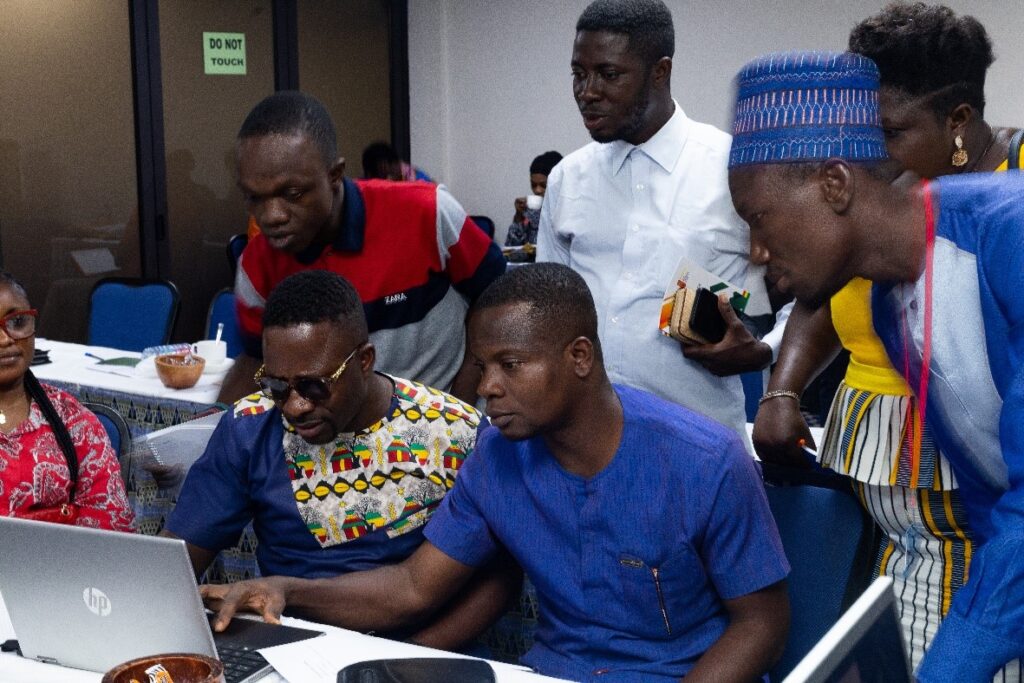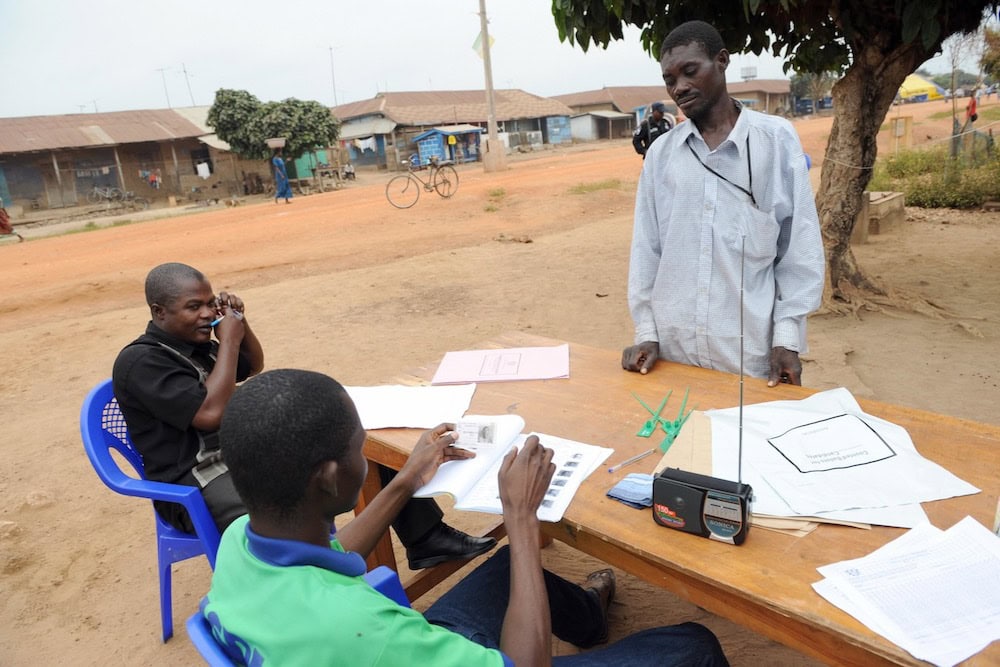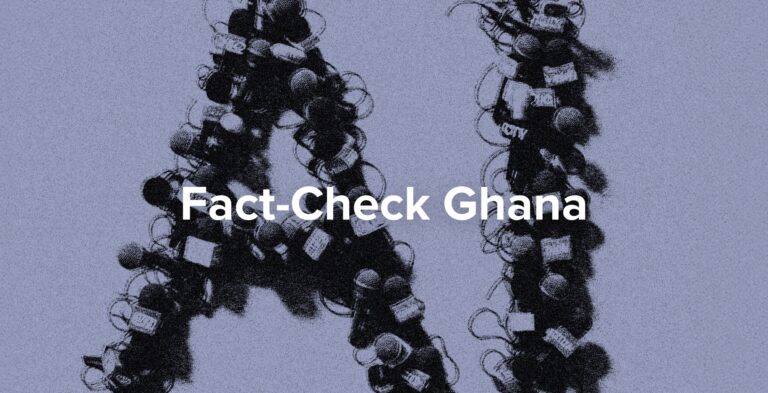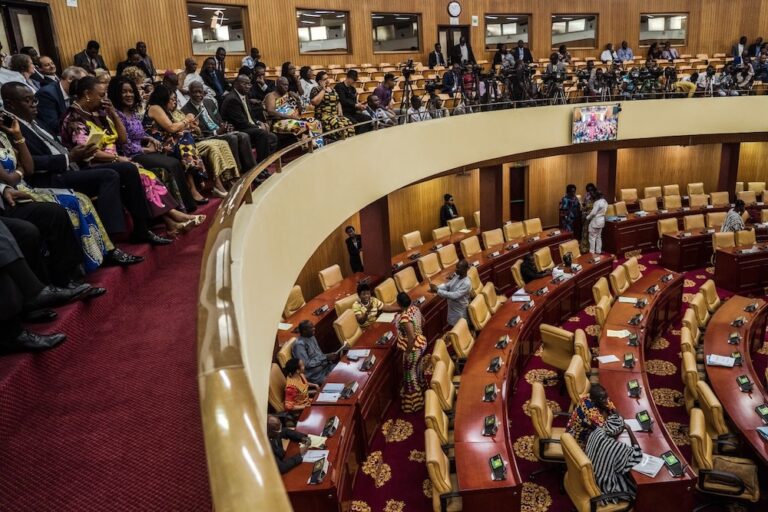Data collected from Media Foundation for West Africa's monitoring project will be used to curb toxic narratives and hate speech prevalent during elections.
This statement was originally published on mfwa.org on 9 July 2024.
In the build-up to Ghana’s 2024 elections in December, the Media Foundation for West Africa (MFWA) is implementing a number of interventions to promote a culture of peace, tolerance and inclusive social and political narratives devoid of hate speech, toxic and polarising narratives.
Under the ‘Countering Hate Speech and Polarising Narratives to Foster Democratic Consolidation and Peace in Ghana’ Project, the MFWA has trained a total of one hundred (100) journalists across five zones of the country. Two-day training sessions were held for 25 journalists each in the Greater Accra, Ashanti, Northern, Upper East, and Volta regions between the months of May and June.
These training workshops have enhanced the knowledge and skills of the selected journalists to contribute to reducing incidences of hate speech and divisive narratives that undermine social cohesion, peace and stability in the context of the 2024 general elections. Through fact-checking skills that were imparted, the trained journalists are also in a better stead to promote fact-based public and media discourses on their platforms in order to counter mis/disinformation and enhance richer and productive national conversations. As national institutions mandated to promote democracy through civic education and prevent, manage and build sustainable peace in Ghana respectively, regional representatives of the National Commission for Civic Education (NCCE) and the National Peace Council (NPC) were present at the training sessions and urged the journalists to be advocates for peaceful elections.


Language monitoring exercise
To counter Hate Speech and toxic narratives, it is critical to monitor and document incidents of incitements and the use of intemperate language that foment polarisation on media platforms, and rightfully call out perpetrators, to ultimately ensure sanitized political discourses and a peaceful environment ahead of the elections.
Thus, the MFWA has commenced another round of its flagship elections campaign language monitoring project, which is aimed at monitoring language used by politicians and politically affiliated persons, with the goal to flag abusive expressions. The exercise is designed to monitor key programmes on selected radio stations across the country to track indecent/inflammable expressions uttered by members and sympathisers of political parties.
Following a call for applications and subsequent screening, a total of 10 individuals were recruited, trained, and equipped to track campaign language on 10 radio stations in selected regions. The initial list of 10 stations are; Accra FM (Accra), Angel FM (Kumasi), Ashh FM (Kumasi), North Star Radio (Tamale), Oman FM (Accra), Power FM (Accra), Radio Gold (Accra), Wontumi Radio (Kumasi), Zaa Radio (Tamale) and Akpini Radio (Kpando). The plan is to scale up the number of media monitors and radio stations in the coming months.
In April, these media monitors were familiarized with a monitoring instrument that guides their work. The instrument, which was jointly developed and validated by stakeholders made up of political parties, media groups, language experts, and CSOs, was used for the 2012, 2016 and 2020 elections language monitoring projects.
Each monitor has been provided with a digital recorder to enable them to record expressions that, per the monitoring instrument, constitutes hate speech, insults, pro-violence and provocative language; unsubstantiated allegations; tribal slurs; and other forms of inappropriate expressions. These would be flagged and documented for evidential and verification purposes. The reports will identify the individuals and also name the radio stations on which such expressions are used.
Since 2012 when it was launched, the campaign language monitoring project has served as an important source of data on indecent political campaign language in Ghana and Niger.
In Ghana’s 2020 elections, 60 radio stations selected across the country were monitored from January to June 2020 with a total of 17,280 programmes tracked on the target radio stations. A total of 175 individuals made 582 indecent expressions, with insulting and offensive remarks ranking as the topmost offense.
The language monitoring project is intended to discourage the use of hate speech and other forms of abusive language in political discourses. It also aims to promote fact-based narratives that encourage engagements across groups with divergent opinions, with the ultimate aim to enhance peaceful co-existence, social cohesion and democratic stability in Ghana before, during and after the elections.
National Multi-stakeholder coalition against hate speech and other toxic narratives
On July 17, 2024, a public forum on countering Hate Speech and polarising narratives will be held in Accra to bring together stakeholders to discuss and build national consensus against Hate Speech and Toxic narratives. At the event, a ‘National Multi-Stakeholder Coalition against Hate Speech and Polarizing Toxic Narratives’, which comprises reputable national organizations, will be officially unveiled.
From time to time, the Coalition will issue joint statements on emerging issues of hate speech and polarising narratives, using the reports from the language monitoring exercises, and call for moderation and decent political and election-related discourses to foster peaceful campaigning before, during and after the elections.
Regional Youth Dialogues
In the coming months, other initiatives like a Regional Youth Dialogue will be held in selected regions to mobilise and sensitise the youth about hate speech, mis/disinformation, incitement, and polarizing narratives, and the key role they play in ensuring peaceful elections.



